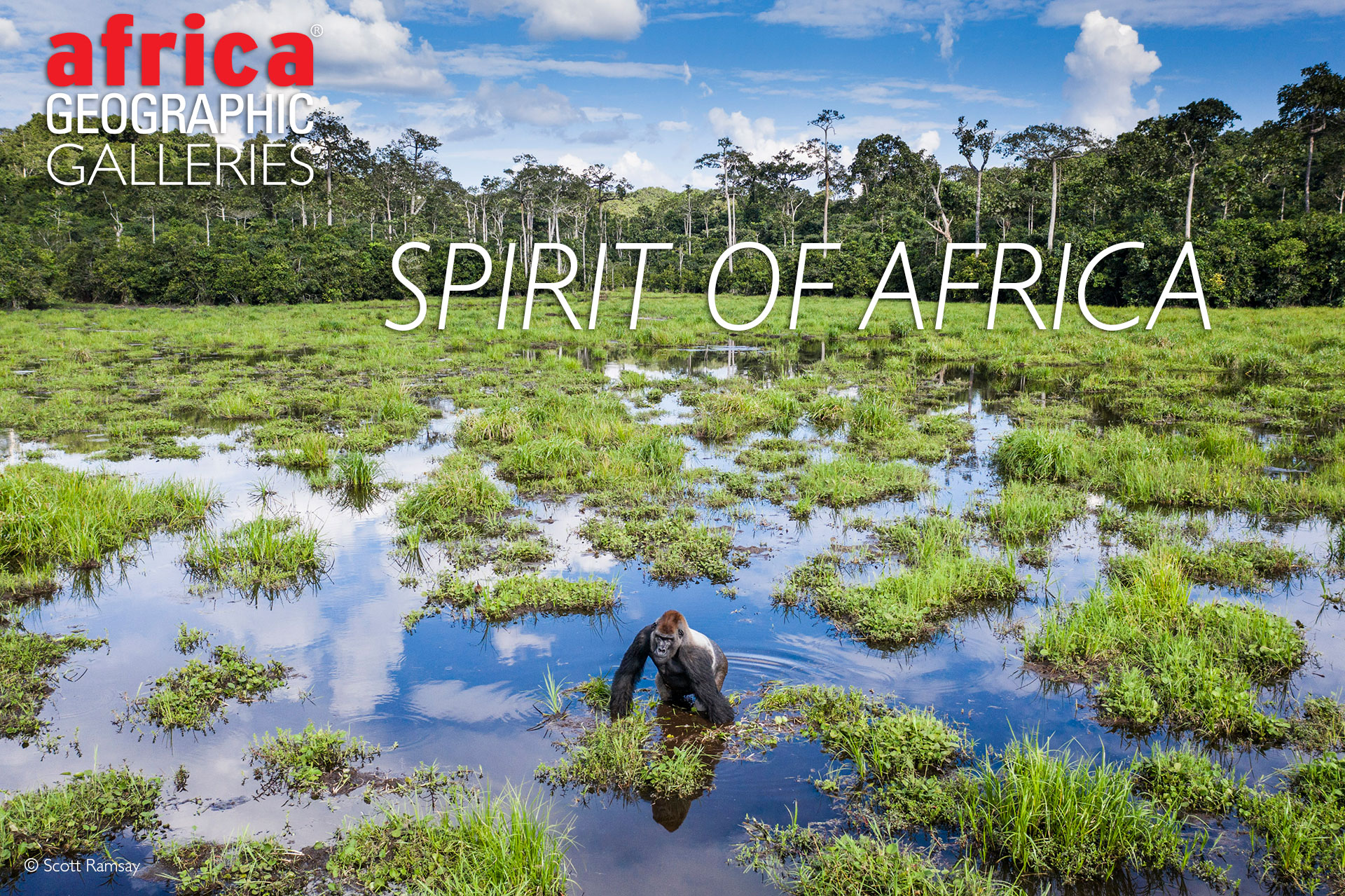
Scott Ramsay on capturing the spirit of Africa


Two decades of photographing and writing about Africa, while deeply entrenched in her wilderness. Thirteen countries and countless moments spent falling deeper in love with the continent, its wild places, and its people. That’s what inspired Scott Ramsay’s latest book, Spirit of Africa.
“Wild Africa taught me to be effortlessly immersed in the present moment,” says Ramsay. His book celebrates the human spirit and is a call to protect and expand Africa’s wilderness in an increasingly industrialised world.
This personal and visually stunning work features evocative images and heartfelt writing, taking readers to some of Africa’s last wild places. Ramsay’s anecdotes and conservation stories highlight the wonder of Africa’s landscapes, wildlife, and people. Below, we feature a collection of Ramsay’s photos, thoughts and anecdotes on what inspired Spirit of Africa – in his own words.
Sacred Africa
“It’s an immeasurable privilege to be alive and healthy on this wondrous planet, in the company of Earth’s astonishing biodiversity. If you become fully conscious of this fact, it can alter your thinking and behaviour 180 degrees.
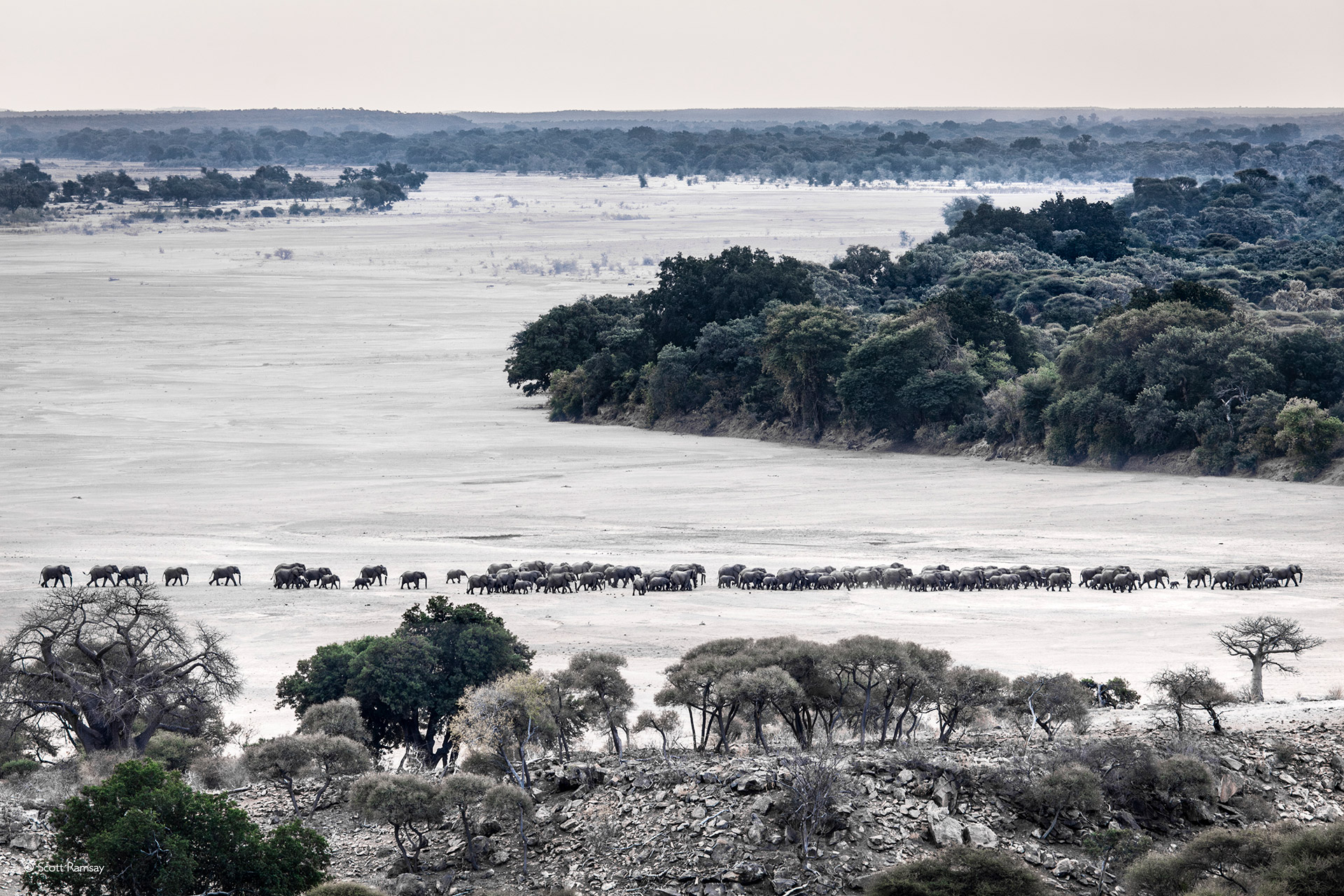
I want to inspire people to see African wilderness in a new way: as not just a collection of parks and reserves where people go on holiday and where animals are protected (which is, of course, amazing and essential). I want to inspire people to go into African wilderness and connect with the spiritual side of it. It can’t be quantified, but I try to explain its impact on me in Spirit of Africa. Conservation isn’t just about protecting animals and landscapes – it’s about conserving beauty, wonder, awe and freedom. It’s about conserving our human spirit, sanity, and joy.
Ultimately, to be alive and healthy on this planet and to witness all these incredible animals and landscapes can be a deeply recalibrating experience. Perhaps, as a result, they will see African wilderness as I see it – priceless and sacred.
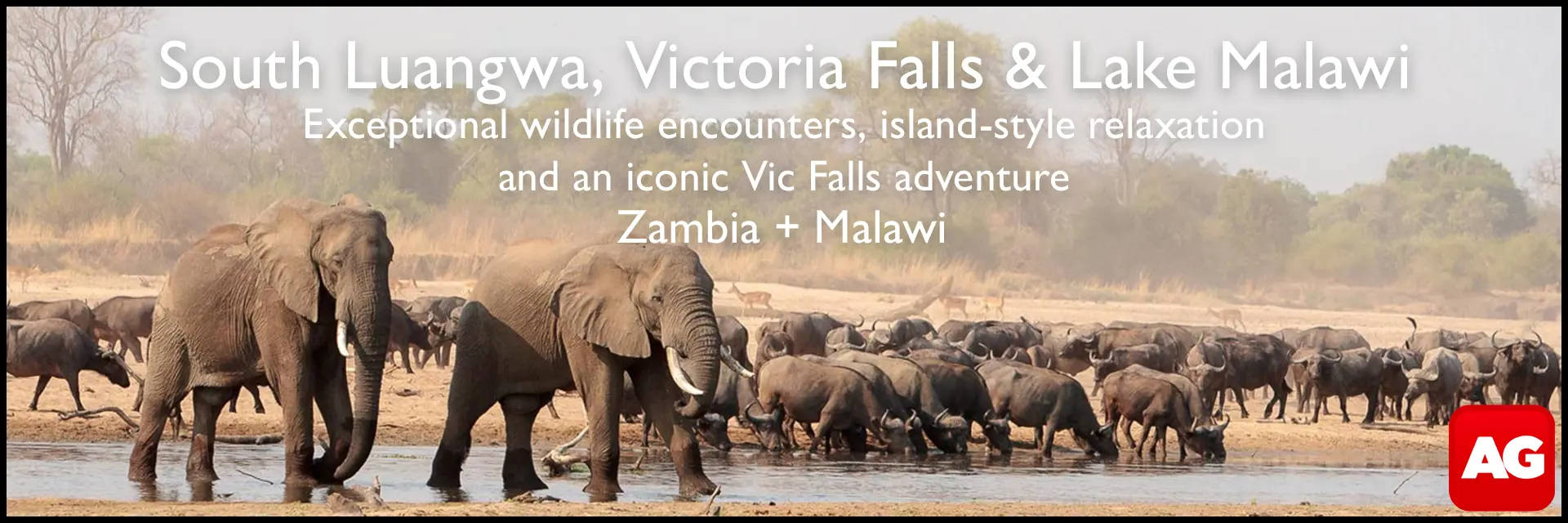
It was a series of moments that shaped my love of African wilderness and inspired Spirit of Africa: Camping in the Kalahari on my own for two weeks. Encountering a bull elephant on foot in Mana Pools. Sleeping under the stars of north-west Namibia. Listening to the chorus of frogs and hippos at night alongside the Zambezi River. Walking a wilderness trail in Imfolozi and watching three white rhinos come down to drink in front of us. Swimming in rock pools in the Aberdare Mountains in Kenya. Sitting alone with a young lowland gorilla in the Congo. Sleeping near a cave covered in Bushmen paintings in the Drakensberg. Bumping into a black rhino in a thunderstorm while on a trail in the Lowveld. Swimming with gully sharks in the icy waters of the Cape. My memory is full of such moments. And the love affair goes on
It’s not just about Africa’s wild animals. The spirit of the people is as powerful. I often make friends with local people in Africa who have so little materially, but are so rich in spirit and kindness. I once met a Datoga woman in Tanzania who seemed to turn a light on inside of me. She couldn’t speak English, but somehow, her spirit shone straight into me. There’s an undeniable energy in Africa that permeates not only its landscapes but also its people. It’s why I included people in this book. The spirit of Africa enriches every human who steps on its soil.
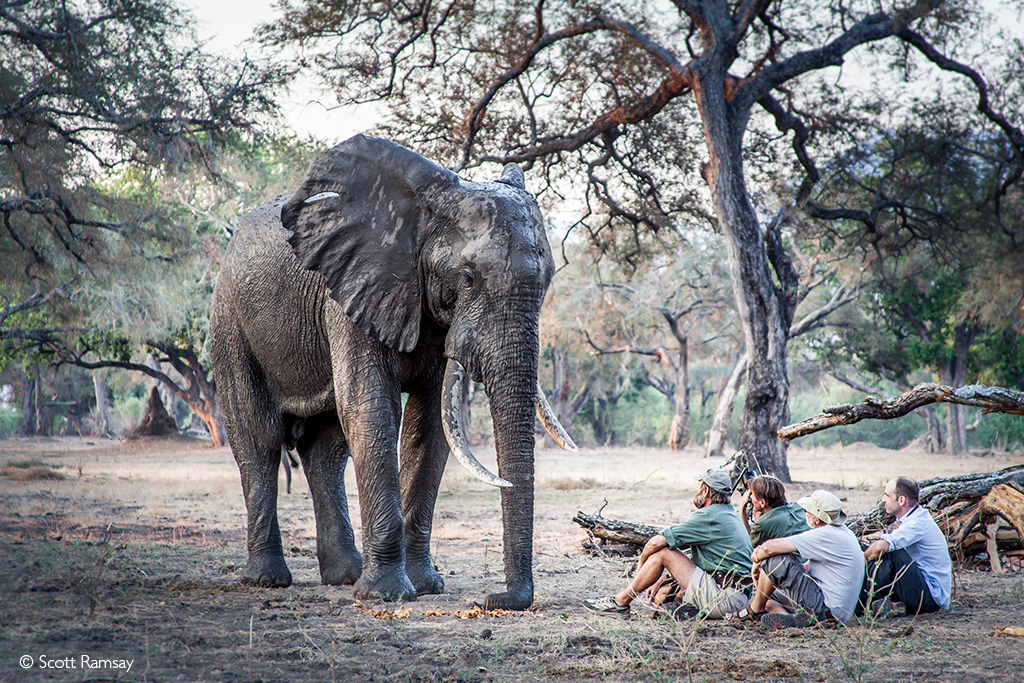
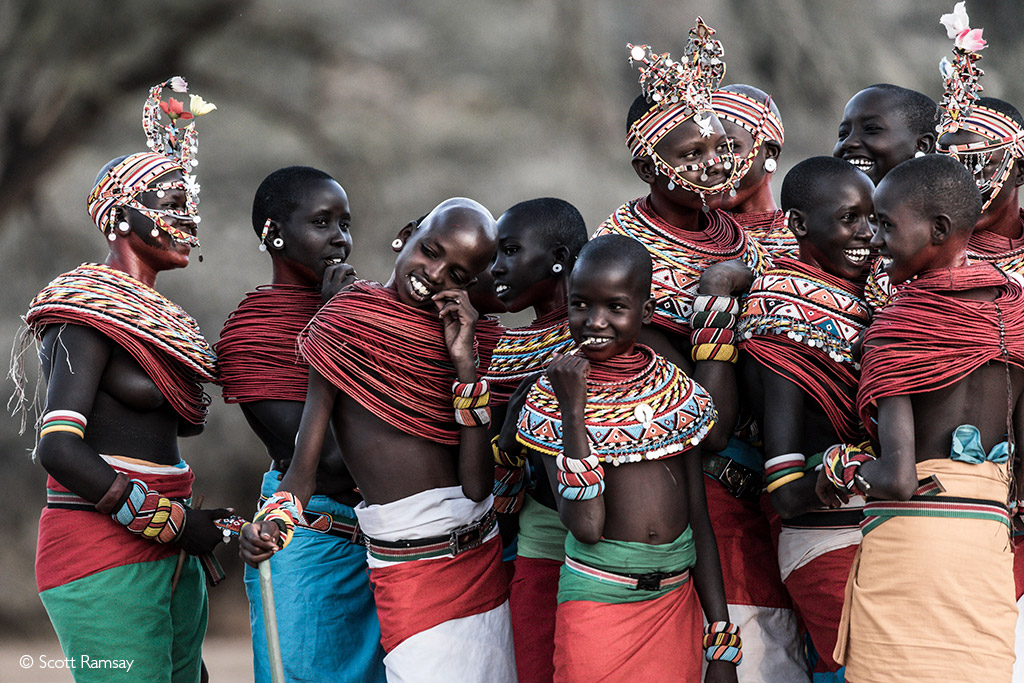
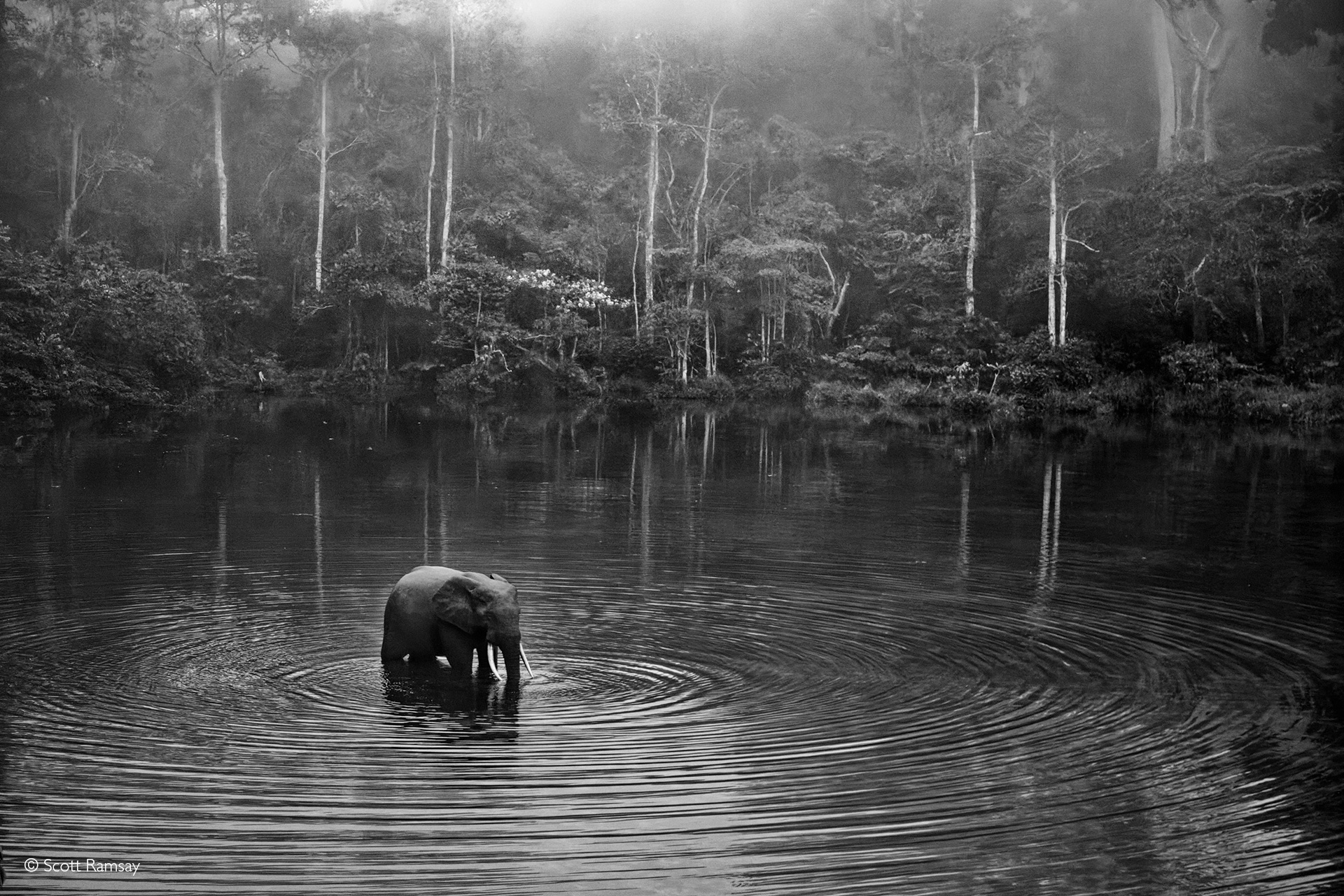
Plugging into ‘the source’
I didn’t want to make a book that was just pretty pictures with innocuous captions. The human world, in most places, seems to be in a big mess, and people are struggling with mental and spiritual issues. Major wars are going on, but the biggest war is the one humans have been waging on Mother Earth since the agricultural revolution. We are living in an era of immense ecocide, and the impact on our human psyches is massive. I wanted to address this theme in the book. We all seek meaning in our lives and find it in different ways. In my case, African wilderness gave my life meaning. I felt like a caged animal when I worked in the corporate world. That life suits many people, and I respect that, but it wasn’t for me. I felt so disconnected from my body, my mind, and my spirit.
When I left that world and started exploring Africa’s wild places as a photojournalist, it was like I had been plugged directly back into the source. I had loads of energy, I was happier than ever, I was more patient, I was calm. I felt like I had been released back into my natural habitat. Everything seemed to flow again. Looking back, I think it was simply the incredibly beautiful and wild environments that rewired my brain and neural pathways.
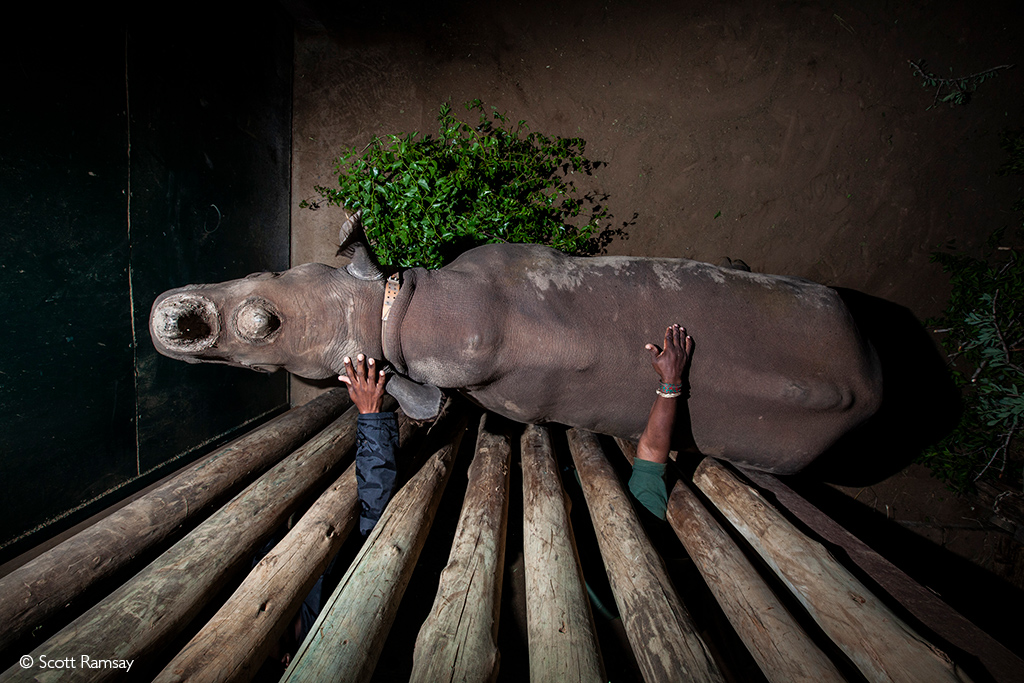
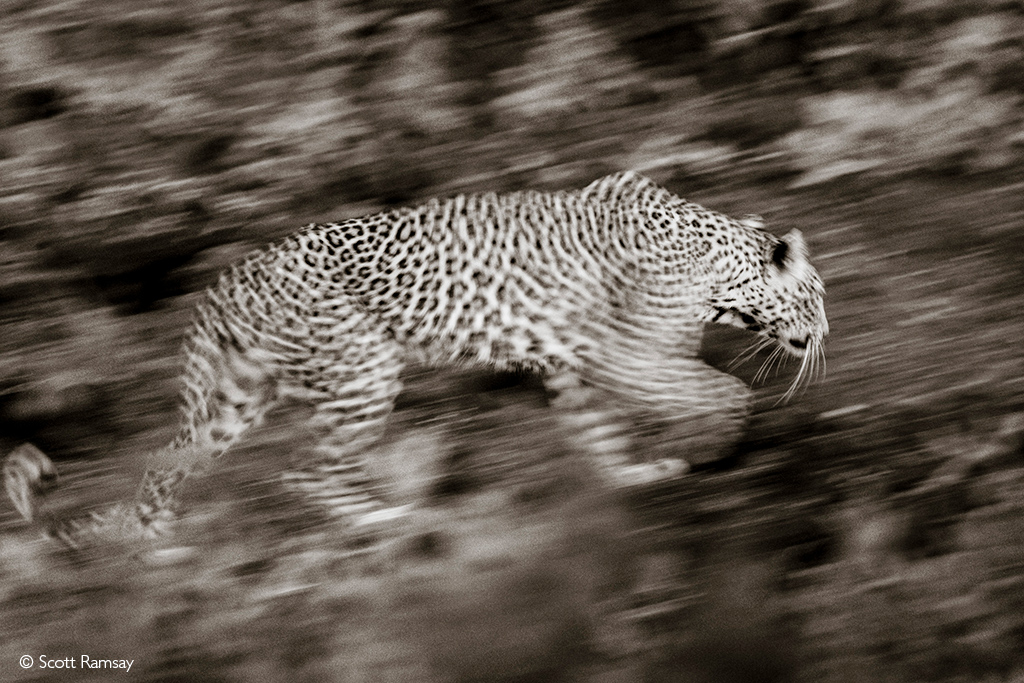
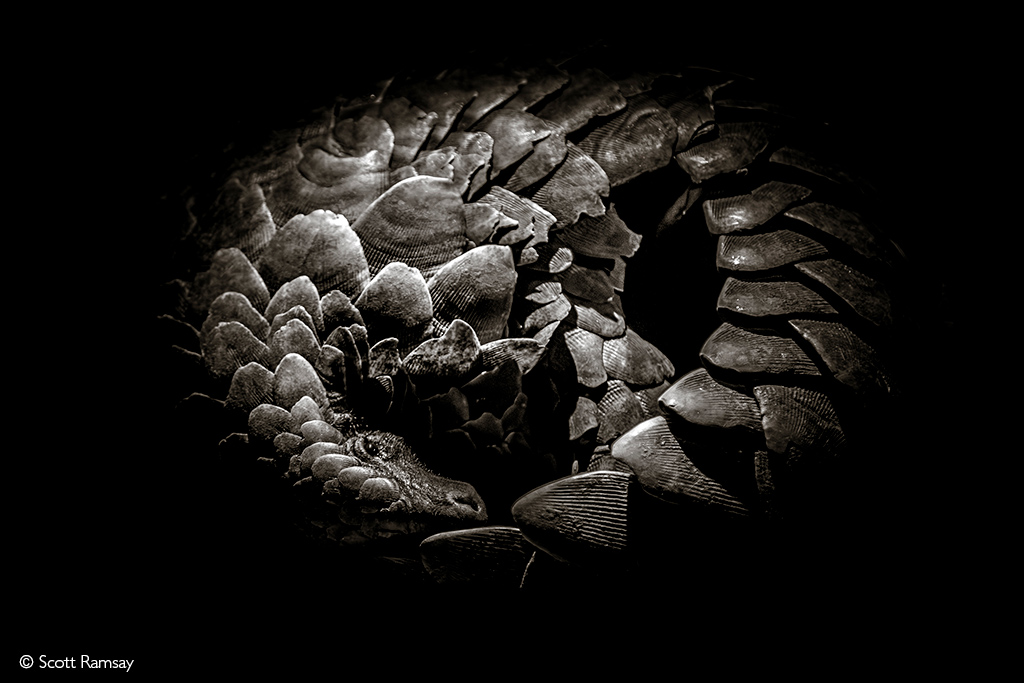
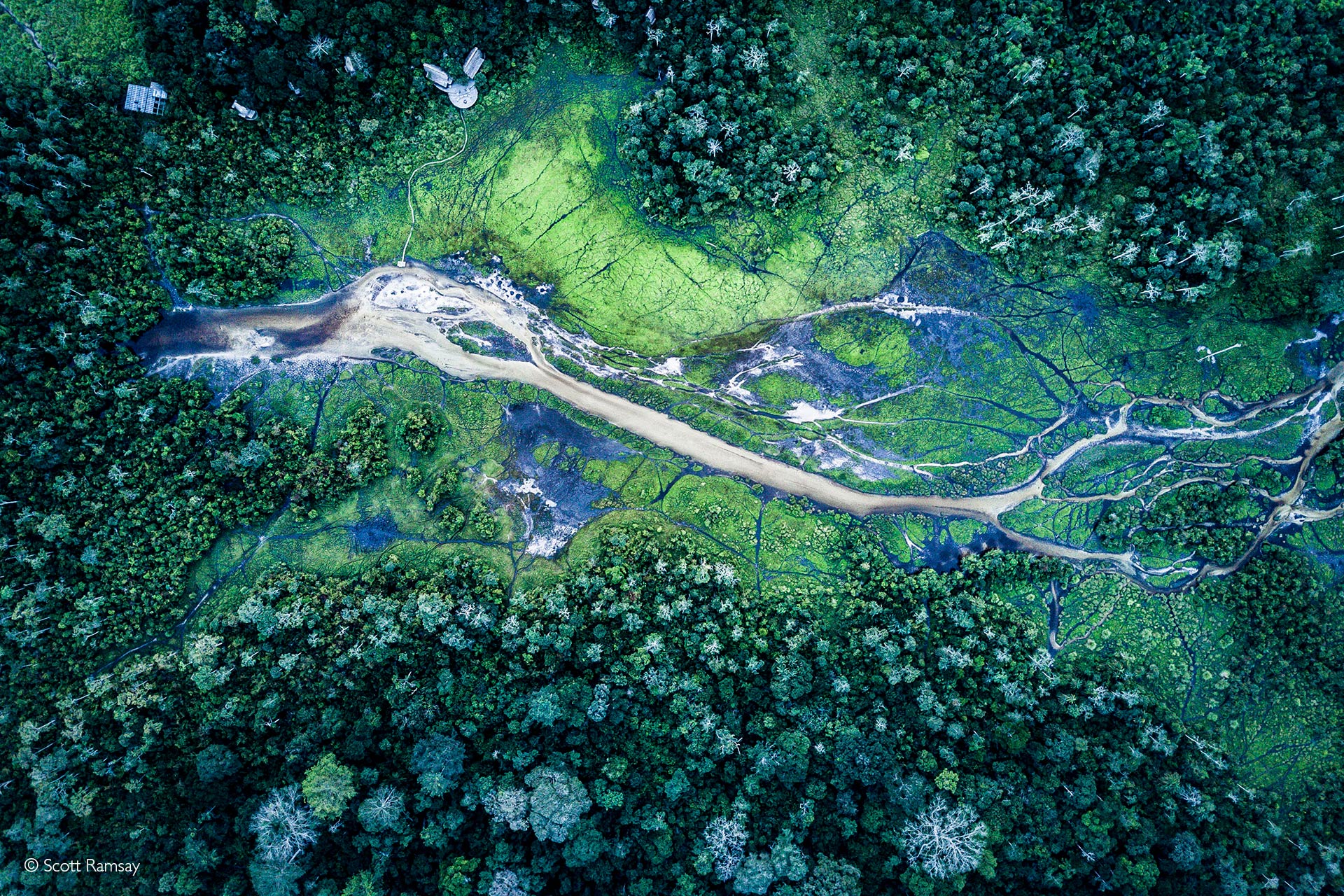
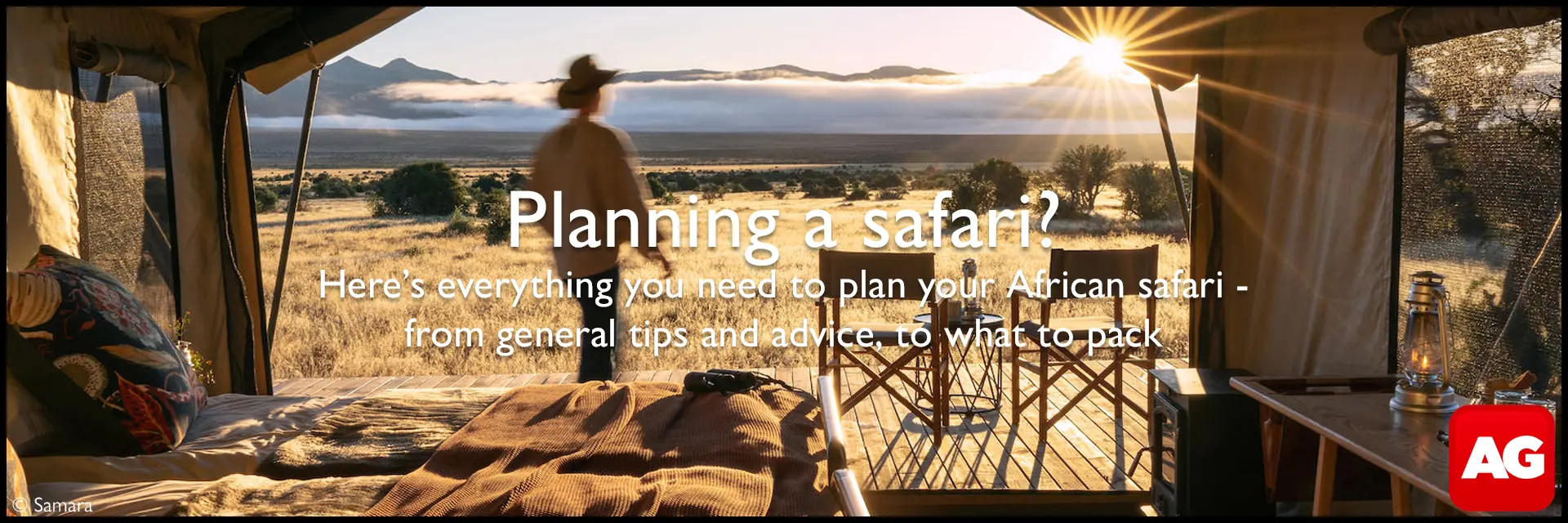
Ancient rituals of Africa
Our human spirit comes from Africa. We evolved for millions of years in Africa, and our bodies, minds – and I suggest, our spirits – are designed by and for Africa. We have populated the rest of the world, but Africa remains our original home. The spirit of the land still thrives here, and when you live in Africa or visit Africa, you reconnect with your human essence.
 Inspired to embark on your own African safari adventure? Check out these amazing safari destinations, or browse our ready-made safaris.
Inspired to embark on your own African safari adventure? Check out these amazing safari destinations, or browse our ready-made safaris.
When you sit around a small campfire in an African wilderness area, under the stars, and listen to lions roaring nearby, you are conducting a ritual that connects you with tens of thousands of generations of your ancestors. That shouldn’t be underestimated. If we lose the wild animals and the wild landscapes, we will lose our human essence.
Humans need to experience awe and vulnerability regularly. A regular sense of awe and vulnerability undergirds a spiritual, meaningful life. And wild Africa still offers us this awe and shared vulnerability.
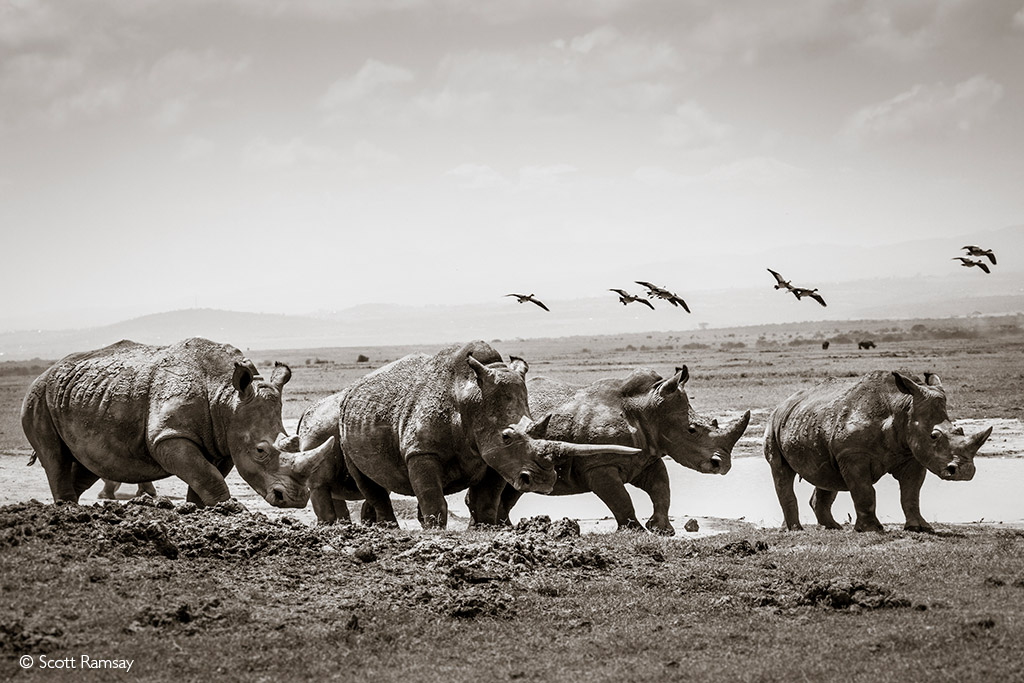
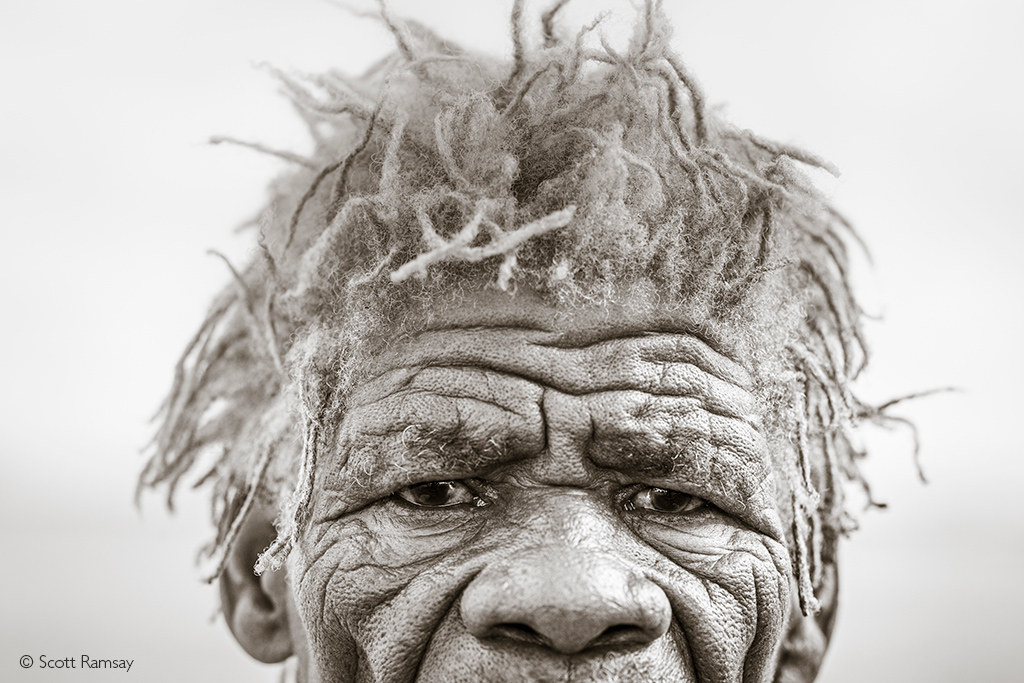
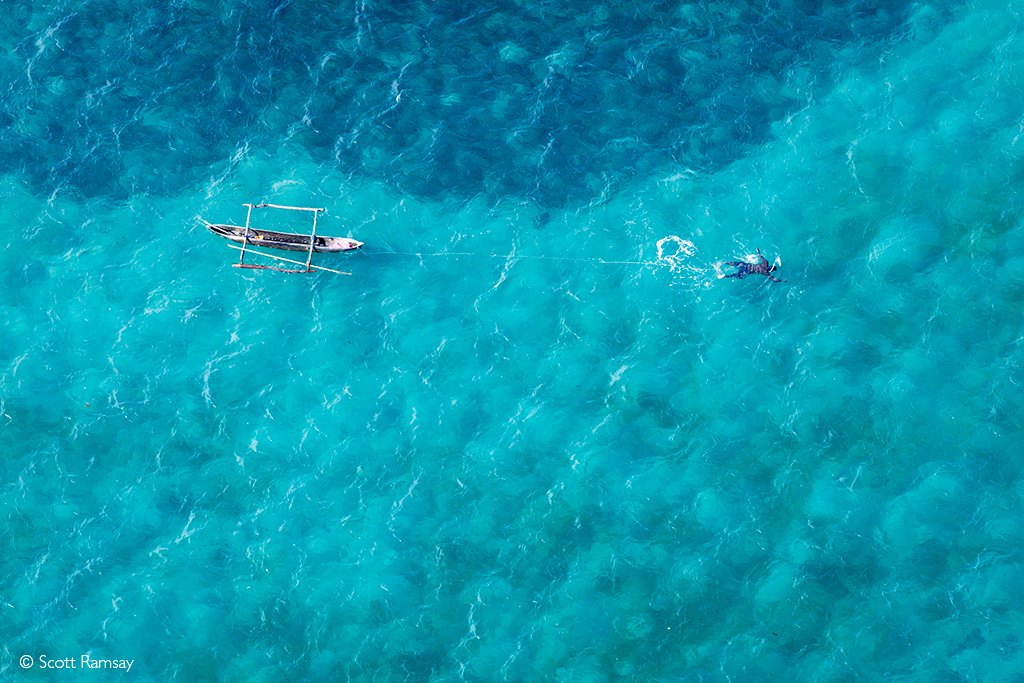
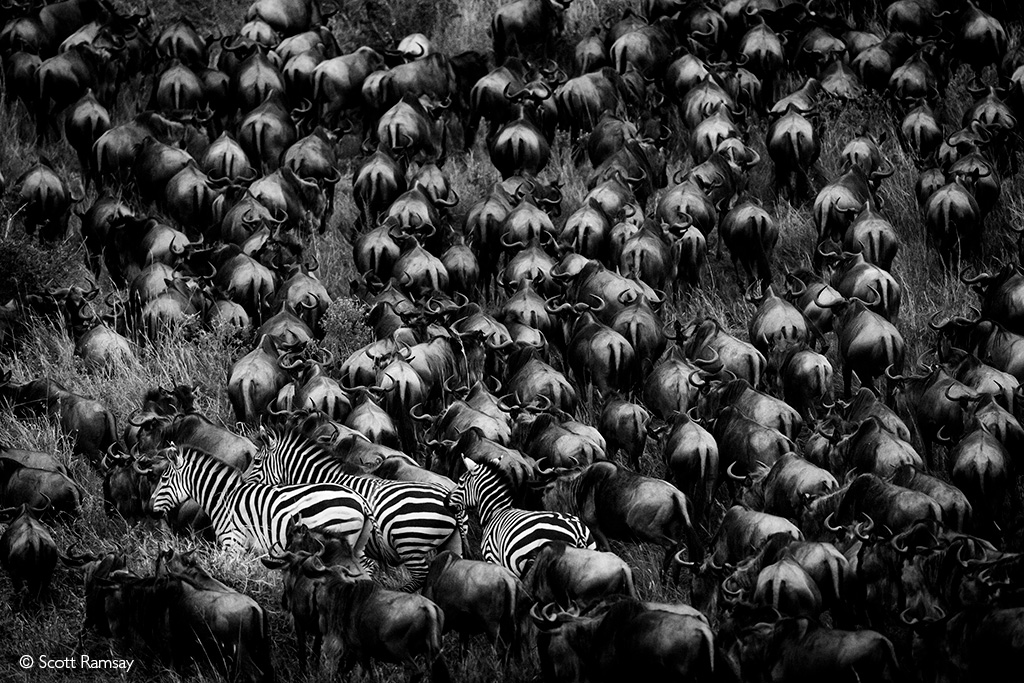
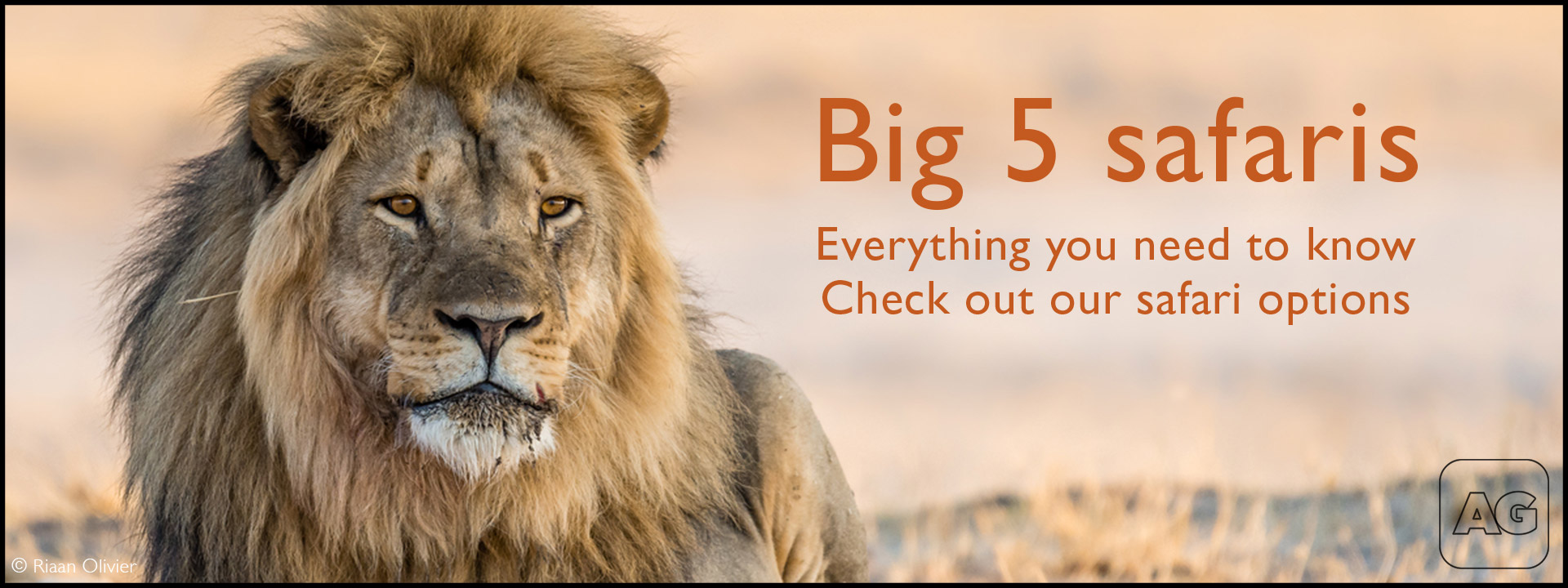
Hope for a connected future
Humanity needs to learn how to share with the rest of nature. Large, connected natural habitats are the foundation of all conservation efforts.
I write about lions, pangolins and elephants and their future. Africa has amazing conservationists and communities who are doing impactful work. The significant danger is that these animals end up in parks that aren’t connected to each other, and then every park becomes a glorified zoo that has to be managed intensively. We have to ensure that wild animals can move large distances if they need to – to breed, and feed, and thrive. They need freedom, just like us.
But the people of Africa give me hope. Africa has the best and most committed conservationists on the planet. We still have the biggest numbers and diversity of wild, terrestrial fauna on the planet. Much of the world has lost most of its large mammals.
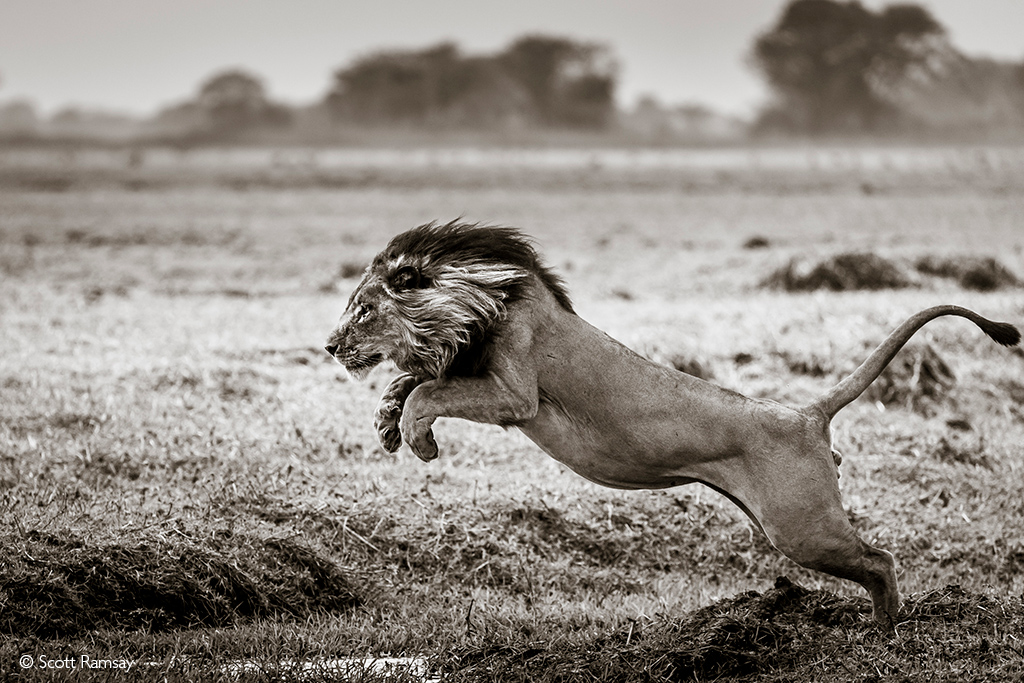
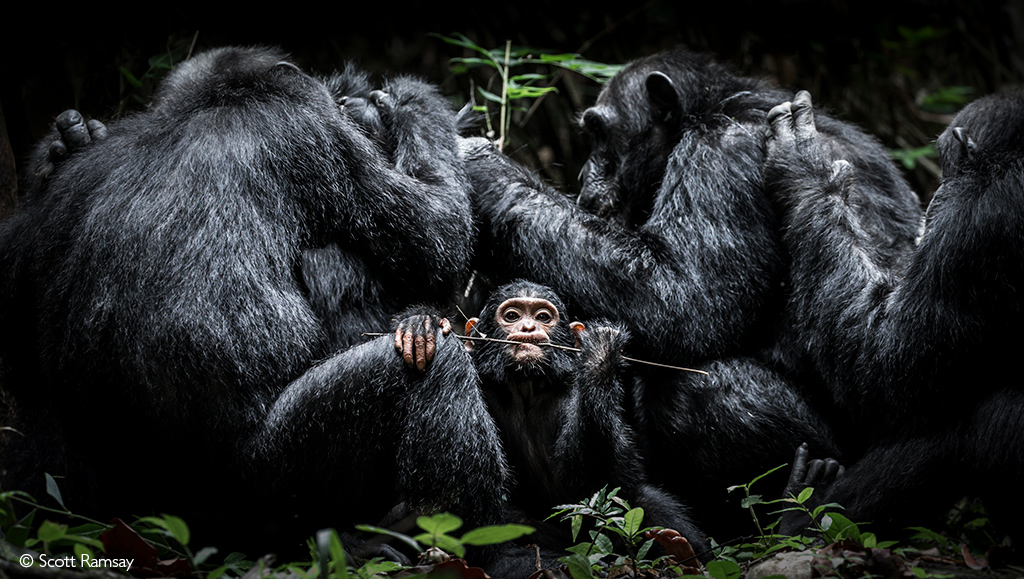
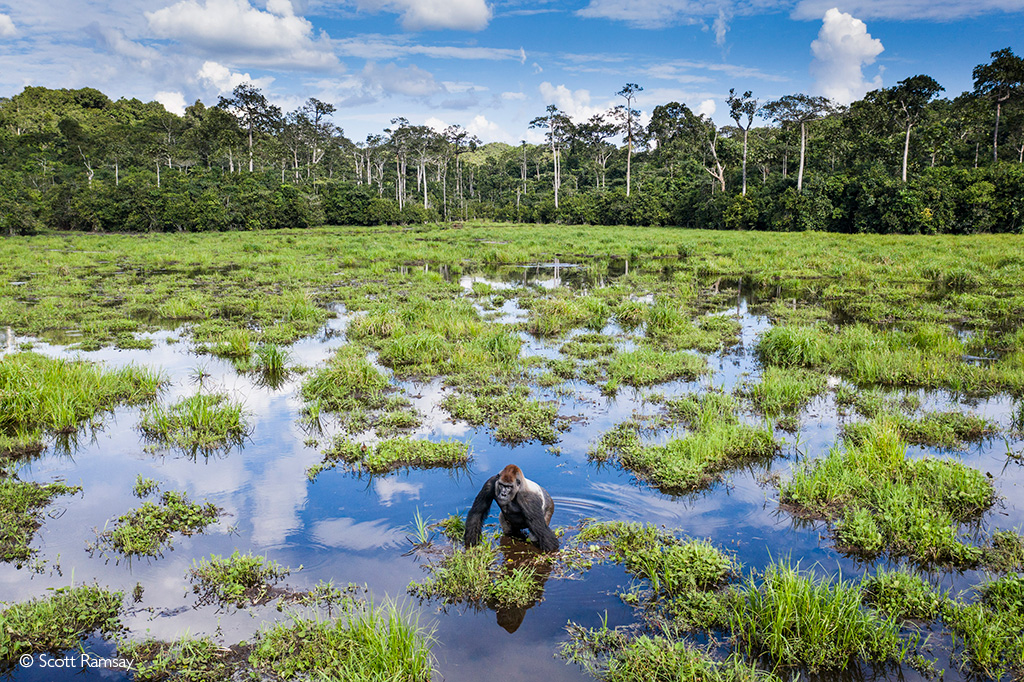
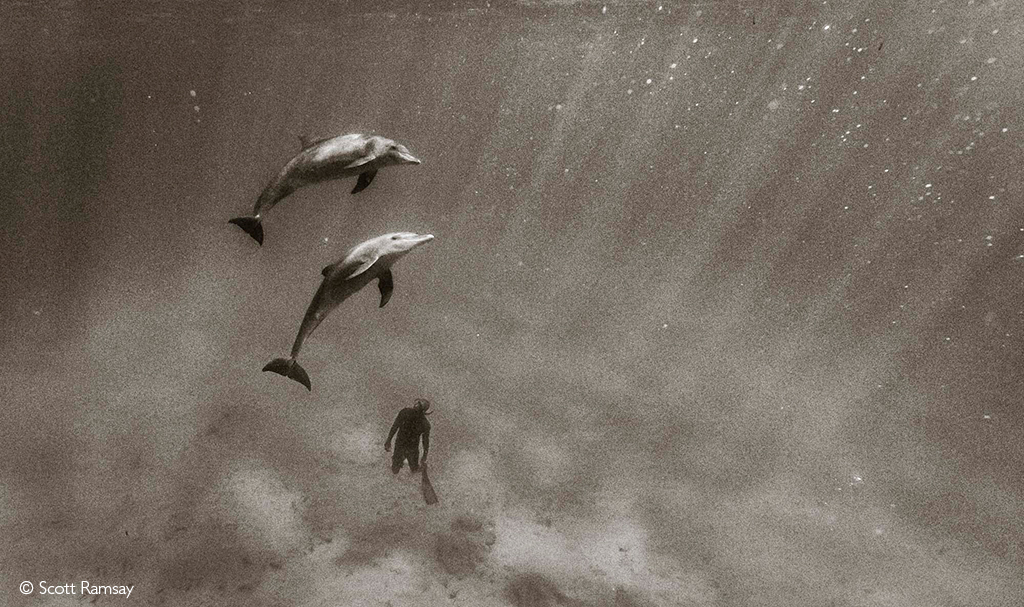
In many ways, we are showing the rest of the world how to work with local communities and ensure that humans, wild places and wild animals thrive together. It’s not a perfect picture, but it is generally better than anywhere else.
As one of my unofficial mentors, Jonathan Kingdon, wrote: ‘Africa is rich. It is the rest of the world that is poor.’
I think the world is waking up to the fact that wild, pristine nature is the foundation on which human societies thrive. And Africa has the finest diversity of wild places on the planet.”
About Scott Ramsay
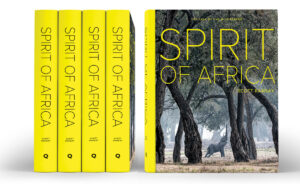 Scott Ramsay’s latest book, Spirit of Africa, takes readers on an immersive journey to many of the continent’s last remaining wild places. The book includes more than 100 powerful images of stunning landscapes, teeming wildlife and beautiful people.
Scott Ramsay’s latest book, Spirit of Africa, takes readers on an immersive journey to many of the continent’s last remaining wild places. The book includes more than 100 powerful images of stunning landscapes, teeming wildlife and beautiful people.
To read more about the book, Spirit of Africa, click here.
Scott Ramsay is a photographer, author and adventurer. He specialises in wildlife and conservation in Africa’s national parks and nature reserves, including private game reserves and community conservancies. Prior to working for himself, Scott worked on South African travel magazine Getaway, after escaping the corporate financial and marketing world. Scott also received the SAB Environmental Prize for Photography in South Africa. He is a member of the Wildlife and Environment Society and Botanical Society of South Africa. He regularly contributes photographs and stories to various magazines and online platforms. Through his work, he hopes to inspire others to experience the African wilderness for themselves – and then to stand up and speak up for this continent’s incredible wild places.
To comment on this story: Login (or sign up) to our app here - it's a troll-free safe place 🙂.![]()




